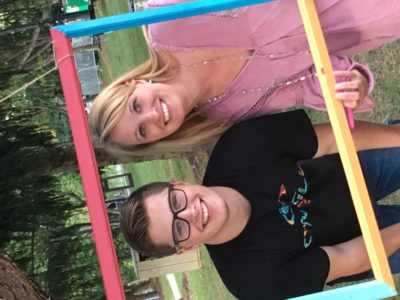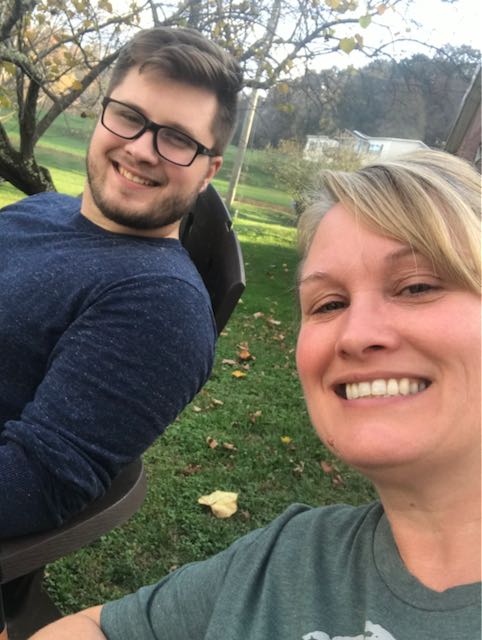 This week you can find me on The Charlotte Mason Show with Julie Ross, a podcast dedicated to discussing Miss Mason’s philosophy, principles, and methods. Julie interviewed me about my experience homeschooling my two children who have dyslexia, using Charlotte Mason’s principles and practices.
This week you can find me on The Charlotte Mason Show with Julie Ross, a podcast dedicated to discussing Miss Mason’s philosophy, principles, and methods. Julie interviewed me about my experience homeschooling my two children who have dyslexia, using Charlotte Mason’s principles and practices.
I’ve been meaning to write about our experience for many years. I just kept thinking that we would get to the “other side” at some point, and I could tell you the story from that perspective — as someone with a few answers. I could then tell you how to make it all better. How to fix it. But alas, I am afraid that I do not have any more answers today than I did initially. So, for now, my goal is just to tell our story. I hope it will encourage those of you homeschooling children that have learning disabilities.
Our journey with dyslexia began when my first son, Mitchell, was little; there were some signs that I didn’t know were indeed signs. For instance, no one but his dad and I could understand him until he was well into kindergarten and had been in speech classes for about two years. He continued those speech classes until he was eight years old. Later I learned that there is a link between speech delays and slow reading. I cried when I discovered that. I can’t explain exactly why I cried, but it had something to do with him just being who he is and that this “problem” wasn’t isolated.
Because I didn’t recognize the signs, I didn’t know what to think when he couldn’t consistently remember the first few letters of the alphabet. He was my oldest child and the only grandchild on either side of our family. Homeschooling was disparaged by one side of the family. The other side supported our decision to homeschool, but it included a long line of teachers. The pressure was distressing. I had something to prove, and the only thing I knew to do was to try harder. Therefore I pushed. Hard. I regret no other parenting mistake more than that one thing.
We had him tested when he was eight years old. It was a long process, and in the end, there were no answers. They wouldn’t diagnose a child as dyslexic before ten years old. So, we just kept working on it.
I had heard stories of children for whom reading didn’t click until they were ten years old, but ten came and went, and there was no change. So I clung to those stories about children for whom reading didn’t click until they were twelve, but twelve came and went, and there was very little progress. I felt like a failure. My husband and I clashed at times because he questioned whether I was doing all I could do. There must be some way to fix this. We agonized. We cried.
Then we learned about the Davis Dyslexia program. Hiring them was a long faith-filled story, but the short version is that it helped — some. In one week, he progressed from a kindergarten level to a beginning third-grade reading level. We continued the assignments throughout the school year, and at the end of nine months, he had progressed a little further. He was an accomplished third-grade reader but a struggling fourth. I don’t know if you can imagine the joy we felt because of this progress. But I’ll warn you right now that this story doesn’t end with continued progress on that scale. He is 21 years old now, and he is still not a reader.
Something even more valuable was gained through that tutoring, however. Someone besides Mitchell’s parents recognized that he is really amazing. We had been telling him all along how great he is, but I think he thought we had to say that stuff because we are his parents. When someone else, trained in this area, recognized his strengths, he believed it. He said he felt like he “had superpowers.”
Dyslexics are indeed blessed with special powers that ordinary people do not have. They see things from several dimensions, while we only see in 3D. I can only imagine that they would be fantastic engineers because of their problem-solving skills. Their ability to see things from several angles is beyond my understanding, and I’m a pretty good abstract thinker.
With this new information, we were all beginning to recognize Mitchell’s wholeness, despite being challenged in this area. Before that, we kept thinking we would eventually find a magic pill to solve this problem.
Just before Mitchell turned 17, we went through the testing process again. We had two goals at the time, 1) get a diagnosis so he could have the help he would need if he went to college, and 2) gain access to B.A.R.D., which is an audiobook service for the Blind and Reading Disabled. I won’t go into all the details here, but I will say the consultation was the worst experience we had ever had. It was so bad that when we returned for the diagnosis, my husband insisted that I take someone with me to run interference. Luckily, the psychiatrist didn’t seem to remember anything about us on our return visit, and we didn’t correct him when he talked about how my son should communicate with his teachers at school. It. Was. Awful.
But, something good came out of this too. Mitchell was relating the absurdity of everyone thinking they could “fix” him, and I asked, “If they could fix you, would you want them to?” Would he be willing to give up all the good things he has gained from having a dyslexic mind just to read like an average person? He was 17 years old, and I finally realized that I wouldn’t want anyone to fix him because he is so great, just how he is. Sure, life is hard for him, but life is hard for a lot of people.

In retrospect, the thing I’m most proud of doing for my son is offering him a Charlotte Mason Education. If he had gone to public school, he would have spent most of his days in special education classes. He would not have been able to read his school textbooks, so he would have learned very little that his teacher didn’t specifically teach aloud. I’m quite sure he would have felt like a failure, and his personality would have been negatively affected. On the contrary, by homeschooling, he got a one-on-one education tailored to his level in all areas. And by using Charlotte Mason’s philosophy, he had a feast laid before him. An accessible feast, but not one that was dumbed down. His mind is sharp, and having such a strong foundation of ideas has helped him have confidence in many areas. Steady work in the area of narration has helped him learn to communicate his thoughts and opinions, as well. People don’t mistake him for an uneducated person despite his difficulty reading. All the while, the flexibility in preparing a schedule that suited our family allowed him to continue his reading lessons and exercises daily.
The first point of Charlotte Mason’s short synopsis is, “Children are born persons.” Whole persons, unique persons. Some with learning difficulties, some with physical challenges, some with other problems. No matter — they are whole. Keep this in mind hourly if your child doesn’t fit the mold of the expected average child.
Mitchell is 21 now, and I like him so much. Of course, I love him too! But the coolest thing is having our kids grow into young adults we really want to be around and talk to. He doesn’t have everything figured out yet, but he has a LOT going for him.




I love your story! I was just encouraging a mom to play to her daughters( severe learning disabilities) strengths. We have the bonus As homeschoolers of being able to help our Kids develop job and life skills even if they never accomplish the reading goals we set out for originally.
I have my own slow reader, and vision therapy, while not a cure was a HUGE improvement for us. Many adults in that program also.
Best wishes to you and your son!
Thank you so much for sharing! I strongly suspect that my 14 year old son has dyslexia. He is very hard on himself and this is very encouraging!
Thank you so much for sharing your story. My son has dysgraphia and is 13. It has been a journey of fear, guilt, joy, worry, achievements and struggle. We realized early on, like yourself, that he was struggling with reading and later writing. We have a Susan Barton tutor and last year we started him in a private school after many wonderful years of homeschooling. Oh the worry, the what if’s, the condemnation on myself has made me come to God and trust in Him more and more. We’ve realized we won’t “fix” him and he has more people than ourselves who find him fascinating, intelligent kind, helpful and loving. Thank you so much for sharing your story.
I came here today looking for something else and what a blessing to stumble upon this post. We suspect our child has both dyslexia and dyscalculia. The same signs you mentioned were signs for us, too, but we, like you, didn’t know they were signs. Our child is undiagnosed, but as home educators we decided to just go ahead and teach as if we had a diagnosis. Some days are good, some are not. We see little progress in math, but have seen much progress in reading. I often feel guilt and discouragement creeping in, yet know with certainty that child is so very amazing, with a deep capacity for thought, empathy and creativity. It was a providential encouragement to see this post today – just a reminder that we’re not alone as we navigate this journey. Thanks for sharing part of your family’s dyslexia story.